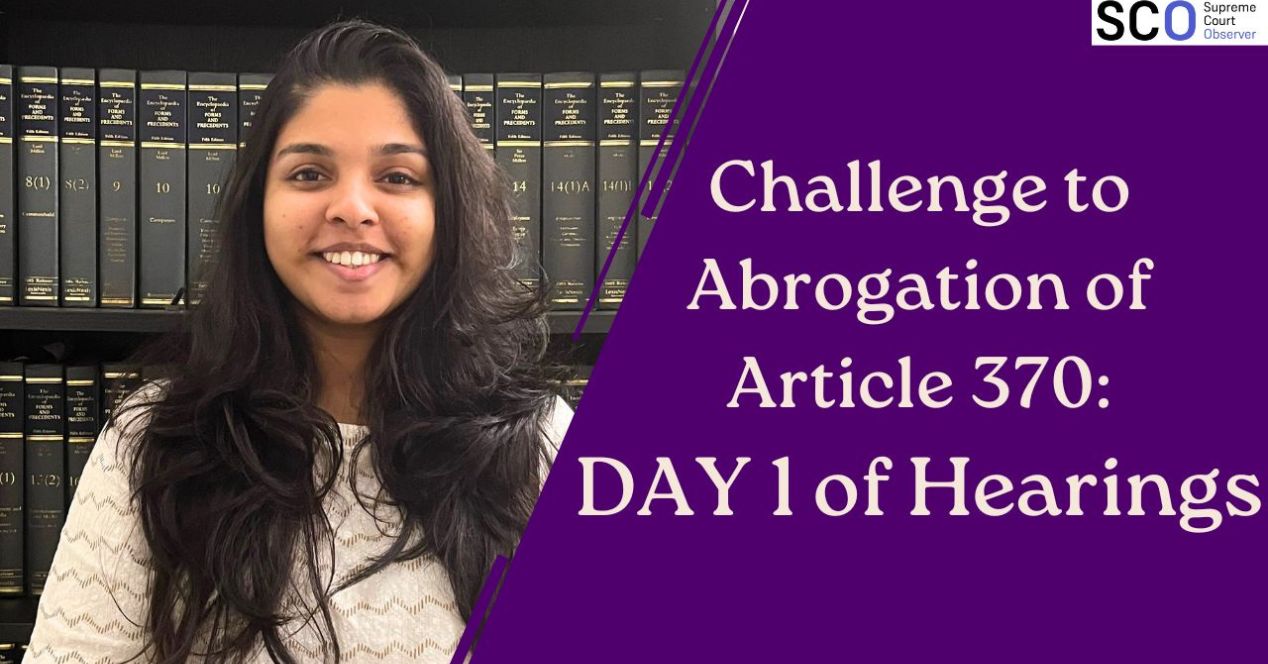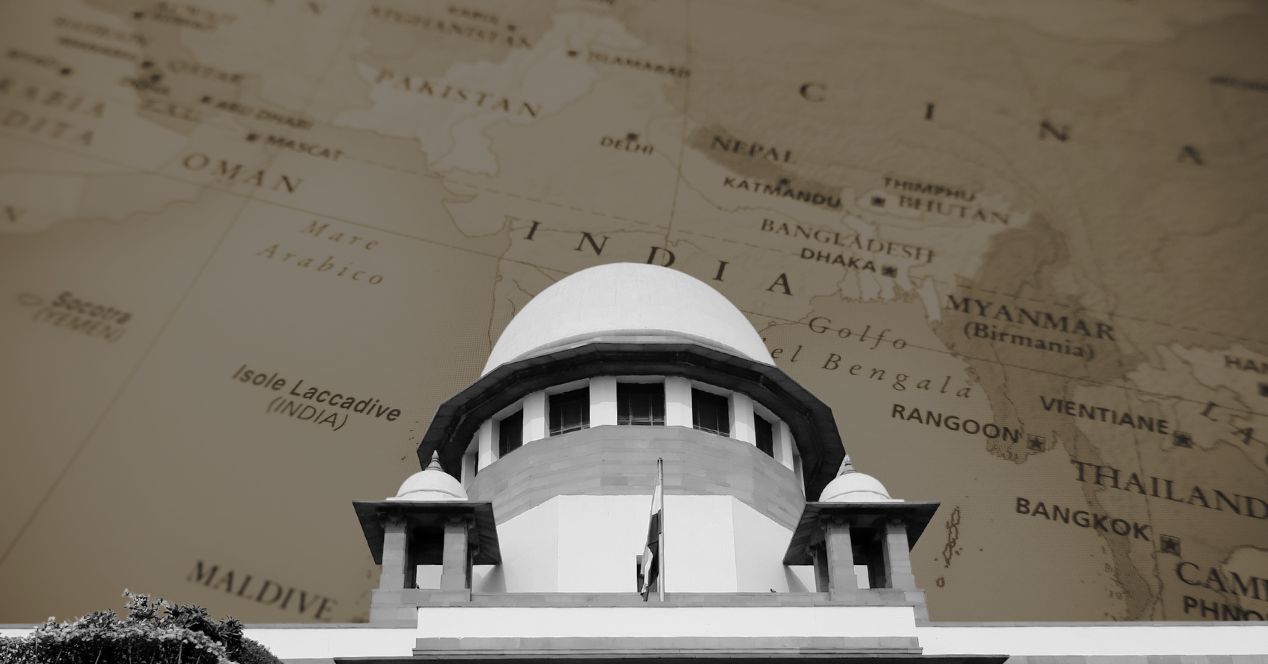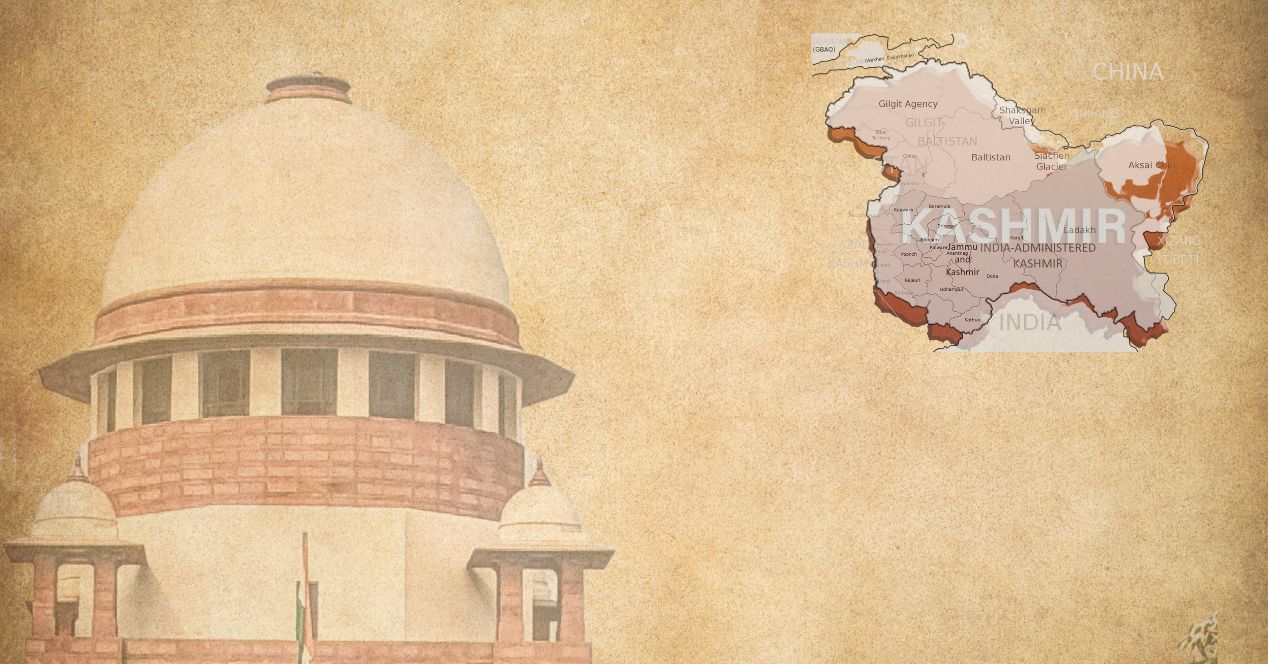Channel
Supreme Court Hears Challenge to Abrogation of Article 370 | Day 2
Senior Advocate Kapil Sibal argued that there was no constitutional mechanism to abrogate Article 370.
Transcript:
Hello and welcome to SCO Daily! Day 2 of the much awaited hearings on the abrogation of Article 370 completed today. Here’s a quick breakdown of the arguments of the day.
The Court’s focus today was on the validity of the process adopted to abrogate Article 370. This provision, which granted special status to J&K was removed through three Presidential Orders. In December 2018, a Presidential Order imposed President’s Rule under Article 356, in Jammu and Kashmir.
Later, in 2019, another Presidential Order amended Article 367, which effectively allowed the Union to amend Article 370 without the recommendation of the Constituent Assembly. Previously, the Article could not be removed without the Constituent Assembly’s recommendation to the President. With this Order, the recommendation of the Legislative Assembly would suffice.
In an Order issued the very next day, Article 370 was abrogated. Days later, J&K was bifurcated, or split, into the Union Territories of J&K and Ladakh.
Senior Advocate Kapil Sibal found fault in this process on two main fronts. First he focused on allowing the legislative Assembly to recommend abrogation. He argued that having a Constituent Assembly was a part of a political exercise. It was a body not limited by any law, which would take into account the will of the people. How then, could the Union replace the workings of the Constituent Assembly, with the Legislative Assembly, which was a law making body limited by the Constitution?
Further, he referred to Dr. B.R. Ambedkar’s speeches in the Constituent Assembly Debates to show that a Constituent Assembly was starkly different from a legislative body. Ambedkar had pointed out that the Constituent Assembly had “no partisan motives. Beyond securing a good and workable Constitution, it had no axe to grind”. If Parliament becomes the Constituent Assembly, “its members will be acting as partisans”, seeking to carry amendments to facilitate their own party’s agenda.
Sibal then looked into the Constitution of Jammu and Kashmir, which limited the powers of the J&K Legislative Assembly. The J&K constitution limited its legislative assembly’s power, and did not allow it to even consider a bill on the abrogation of Article 370. So, he pointed out, the Presidential order effectively vested power to recommend abrogation to a body that had no authority to do so. It simply had to be the Constituent Assembly who had the power to recommend to the President that Article 370 could be abrogated.
The Bench asked—with the Constituent Assembly gone, the J&K legislative assembly left with no power, did it mean that there is no constitutional mechanism to remove Article 370 from the Constitution? Sibal answered in the affirmative. No such bill can be tabled in the J&K Legislative Assembly, and the J&K Constituent Assembly had dissolved. Article 370 could no longer be removed.
Next, Sibal looked at the Presidential Order (2018) which declared President’s rule in J&K. He insisted that declaring the President’s Rule was a part of a long term political ploy. When the President’s Rule was imposed, that Order also did another thing. It suspended a proviso to Article 3 of the constitution which said that the consent of the people of J&K was needed to alter the boundary of the State. Sibal argued that the Union was planning for a bifurcation of J&K which it would ultimately do a year later, in 2019. By removing the need for consent of the people, Parliament could split the state of J&K into Union territories, without anyone’s approval. Sibal argued that the object of Article 356, or the purpose of declaring the President’s rule is to restore democracy. The President uses this power to take over a region for a temporary period to restore democracy. In 2018 when the President’s rule was imposed, Sibal argued, Art. 356 was used for the ‘decimation of democracy’.
The Bench will continue hearing arguments on Tuesday next week. Visit SCobserver.in to read the full and more detailed report




